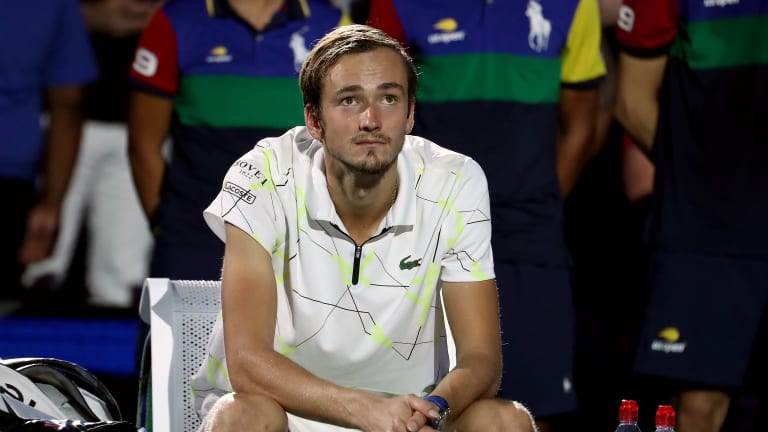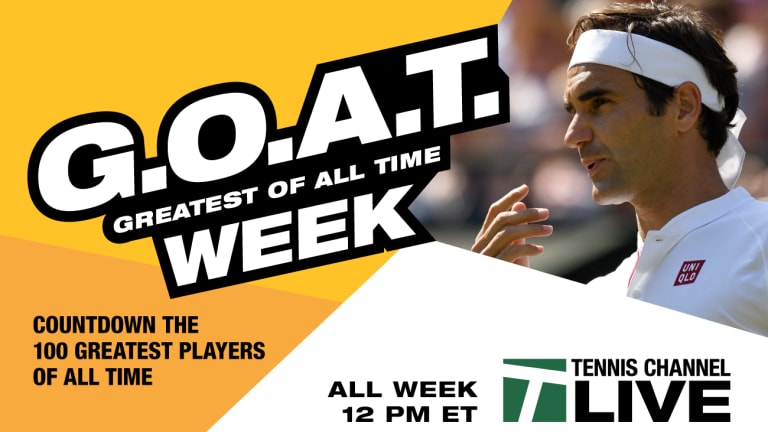It doesn't have to be this way: Medvedev's rise pushed by independence
By Mar 23, 2020Madrid, Spain
Jannik Sinner looks to close gap for world No. 1 in Madrid; Nadal draws 16-year-old Blanch
By Apr 22, 2024ATP Monte Carlo, Monaco
Karen Khachanov navigates complicated dynamic to defeat Daniil Medvedev, emerge from shadows in Monte Carlo
By Apr 11, 2024ATP Monte Carlo, Monaco
“Open your eyes!” Daniil Medvedev exits Monte Carlo in righteous blaze after errant call
By Apr 11, 2024ATP Monte Carlo, Monaco
Daniil Medvedev shakes off mid-match outburst, seals Gaël Monfils in Monte Carlo
By Apr 10, 2024ATP Monte Carlo, Monaco
Monte Carlo Preview: Djokovic, Sinner, Alcaraz take first steps on the road to Roland Garros
By Apr 05, 2024Sunshine Swing in Review
What can we learn from the efforts of both the ATP's young and old guard in the Sunshine Swing?
By Apr 01, 2024Ranking Reaction
Grigor Dimitrov and the one-handed backhand are back in the Top 10 of the ATP rankings
By Apr 01, 2024Served Podcast
The "turducken" of tennis? Jon Wertheim hails Alcaraz, Sinner and Medvedev as the next Big 3
By Mar 31, 2024Miami, USA
Miami semifinal previews & picks: Daniil Medvedev vs. Jannik Sinner, Alexander Zverev vs. Grigor Dimitrov
By Mar 29, 2024It doesn't have to be this way: Medvedev's rise pushed by independence
In the latest upload to Behind The Racquet, the Russian opens up about the difficulty in becoming a professional, major moment of clarity and sticking with being himself throughout his journey to the Top 5.
Published Mar 23, 2020
Advertising

It doesn't have to be this way: Medvedev's rise pushed by independence
© 2019 Getty Images
Advertising

It doesn't have to be this way: Medvedev's rise pushed by independence